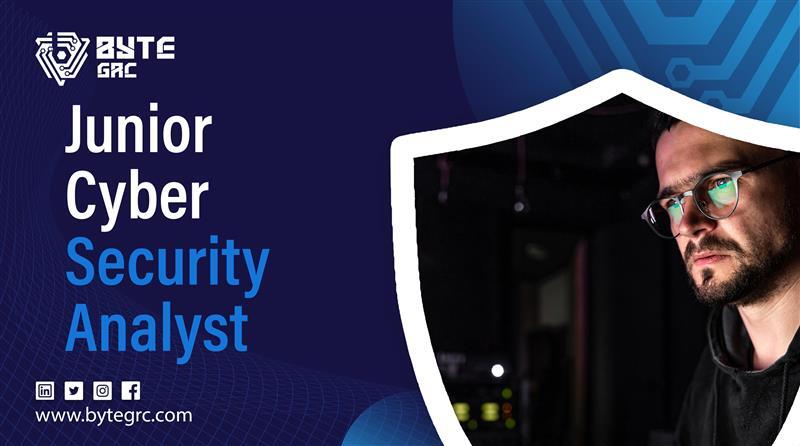
Table of Contents
How A Cyber Security Specialist Safeguards Your Digital World
From small businesses to big banks, everyone relies on strong security to protect their data. That’s where cybersecurity comes in—and one of the most important starting points in this field is the junior cyber security analyst.
This entry-level role is the perfect way to begin a career in cybersecurity. These professionals help keep systems safe, spot risks early, and support senior team members during incidents. In this blog, we’ll break down what a junior cyber security analyst does, where they work, what skills they need, and how to grow in this exciting field.
Understanding the Role of a Junior Cyber Security Analyst
A Jr. cyber security analyst is often the first line of defense against digital threats. They’re usually fresh in the field, either just out of college or shifting careers into tech. But don’t be fooled by the word “junior”—this role holds big responsibilities.
At its core, the job is about helping protect computer systems, networks, and data from cyberattacks. These analysts keep an eye on alerts, support security tools, and help respond when something seems off. As they gain experience, many grow into mid- or senior-level roles like Threat Hunter or Security Engineer.
Where Do Junior Cyber Security Analysts Work?
Cyber threats can hit any industry, so analysts are needed almost everywhere. Common places you’ll find them include:
- Finance – Banks and insurance companies.
- Healthcare – Hospitals, clinics, and labs.
- Government – Defense, law enforcement, or public agencies.
- Tech companies – From startups to software giants.
- Consulting firms – Helping other businesses secure their systems.
They may work in a Security Operations Center (SOC), with an IT team, or even from home in remote/hybrid roles.
Typical Job Titles Related to Cyber Security Analyst Role
While the title “Junior Cyber Security Analyst” is common, it’s not the only one. You might also see roles like:
- Security Operations Center (SOC) Analyst
- IT Security Analyst (Entry-Level)
- Network Security Analyst (Junior)
Each one has similar tasks, just with slight differences based on the company or department.
Core Responsibilities of a Junior Cyber Security Analyst
This job covers a wide range of tasks. Let’s walk through the most important ones:
Monitoring and Threat Detection
Every day, these analysts check SIEM (Security Information and Event Management) tools to review alerts. If something unusual shows up—like a login from a strange location—they investigate further. They also look through logs to find clues about suspicious activity.
Incident Response and Reporting
When there’s a possible breach or attack, Junior Analysts help dig into what happened. They collect facts, follow set procedures, and document everything. Their reports are then shared with senior analysts or managers to take bigger action if needed.
Vulnerability Management
These analysts help scan systems for weak spots (called vulnerabilities). They also support updating systems, fixing issues, and testing defenses. Sometimes they assist with penetration testing, which means simulating an attack to find holes before real hackers do.
Security Policy Compliance
Most companies follow strict security rules like ISO 27001, NIST, or GDPR. Junior Analysts help make sure the business follows those rules. This might include reviewing settings, joining audits, or checking that teams stick to safe practices.
User Awareness and Training Support
Hackers often trick people through emails (phishing). Junior Analysts help train employees so they don’t fall for those scams. They might also run practice tests and build short guides to teach best practices.

Tool and Technology Assistance
They learn and support a wide range of security tools, such as:
- Firewalls and antivirus software
- IDS/IPS (Intrusion Detection/Prevention Systems)
- EDR (Endpoint Detection & Response) platforms
Popular tools include Splunk, Wireshark, Metasploit, and Nessus. While they may not master them all on day one, gaining hands-on time is key.
Essential Skills and Qualifications of Junior Cyber Security Analyst
Here are the detailed skill sets and qualifications of Jr. cyber security analyst:
Technical Skills
To do this job well, certain technical skills are a must:
- Understanding how networks work (TCP/IP, DNS, VPNs)
- Working with systems like Windows and Linux
- Knowing frameworks like NIST or CIS Controls
- Basic scripting skills (Python, PowerShell, or Bash)
Soft Skills
Technical know-how is important, but soft skills help you thrive:
- Problem-solving and thinking critically
- Noticing small details others miss
- Clear communication when writing or speaking
- Staying calm during a cyberattack
Certifications to Boost Credibility
Certs show you’re serious about the field. Some good starting points are:
- CompTIA Security+ – Great foundation
- CEH (Certified Ethical Hacker) – Beginner-level hacking skills
- GSEC (GIAC Security Essentials) – Broad knowledge
- Cisco CyberOps Associate – Focused on SOC work
Educational Background
Most Junior Analysts have a degree in Cybersecurity, Computer Science, or IT. But that’s not the only path. Many also come from:
- Bootcamps
- Online platforms like Cybrary, Coursera, or Udemy
- Self-study with lab tools
Day in the Life of a Junior Cyber Security Analyst
Here’s what a typical day might look like:
- Morning: Review alerts and system logs from overnight
- Midday: Join meetings, help with scanning for vulnerabilities
- Afternoon: Research new threats, respond to incidents
- Evening: Finish reports, study for certs, attend webinars
No two days are the same—and that’s part of what makes the job exciting.
Career Growth and Advancement Opportunities
The following is the clear roadmap of the career:
Next Career Steps
Once you gain experience, you can move into roles like:
- Cyber Security Analyst (Mid-Level)
- Penetration Tester
- Threat Hunter
Later, you can aim for senior jobs like:
- Security Engineer
- SOC Manager
- Chief Information Security Officer (CISO)
Specializations to Consider
Cybersecurity is a big field. You can branch into:
- Cloud Security – Protecting systems like AWS or Azure
- Incident Response – Leading investigations
- Ethical Hacking – Finding flaws before hackers do
- GRC (Governance, Risk & Compliance) – Focused on rules and policies
Salary Expectations (Entry-Level to Mid-Career)
Your pay depends on location, experience, and certifications. On average:
- Entry-level roles: $55,000–$75,000 per year
- Mid-level roles: $80,000–$110,000
- Specialized or senior positions can earn well over $120,000
Challenges Faced by Junior Cyber Security Analysts
This role is rewarding—but it’s not always easy. Common challenges include:
- Keeping up with new threats that change every day
- Working under stress during attacks
- Explaining complex topics in simple terms
- Getting real-world experience early on
Overcoming these challenges builds confidence and skill.
Tips for Aspiring Junior Cyber Security Analysts
If you want to land this role and grow in it, here are a few tips:
- Practice in labs like TryHackMe or Hack The Box
- Build your network through LinkedIn or cybersecurity meetups
- Stay informed by reading blogs or listening to podcasts
- Create a home lab to experiment with tools and systems
Start small and stay consistent—growth will follow.
Conclusion
The role of a Junior Cyber Security Analyst is a key part of today’s digital defense. These professionals monitor threats, help during incidents, and support security tools that protect vital data. It’s a great entry point for those eager to join the world of cybersecurity.
Whether you’re fresh out of school or switching careers, this job offers a chance to make a real impact—and the path only grows from here.
Looking for a trusted cybersecurity partner? Learn more about how Byte GRC can support your business’s security goals.
FAQs
1: Is coding required to become a Junior Cyber Security Analyst?
Not always, but basic scripting in Python or PowerShell can help a lot.
2: Can I become a Junior Analyst without a degree?
Yes. Bootcamps, self-study, and certs can also get your foot in the door.
3: What tools should I learn first?
Start with Wireshark, Splunk, and Nessus for hands-on practice.
4: Is this role more technical or communication-based?
Both. You need to understand tech but also clearly report and explain issues.
5: How long does it take to grow into a mid-level role?
Usually 1–3 years, depending on your learning pace and job exposure.
